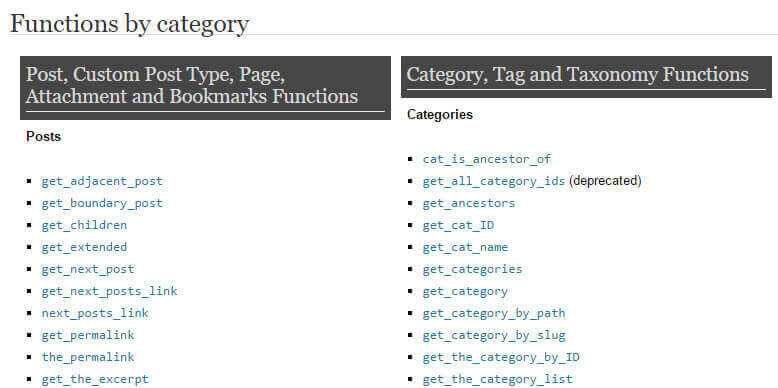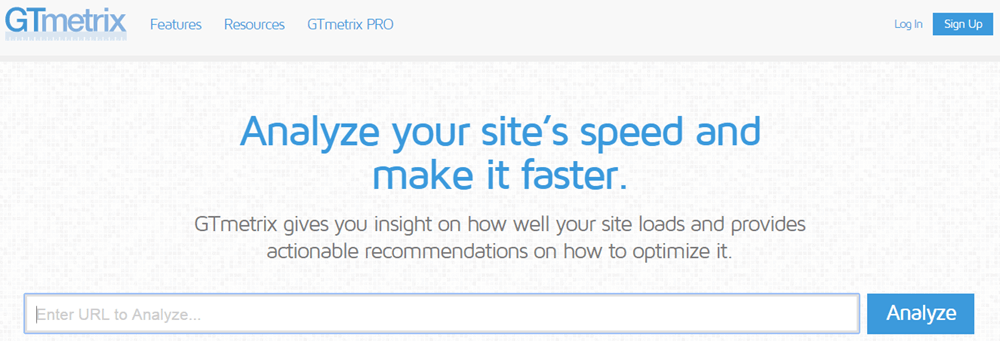Plugins are essential for WordPress websites. If WordPress core is the bread and butter of a website, plugins are the strawberry jam. They turn a generic website into something extraordinary.

Plugins can perform pretty much any function desired on a website. From e-commerce solutions to photo galleries, plugins give WordPress users the ability to create custom websites. This is one reasons WordPress is the most popular content management system available.
July 2025 Offer – For a Limited Time Only:
Get WordPress 99+ Plugins Mega Bundle for 15% off! Don’t miss out!
When it comes to plugins, WordPress users have a lot of choices and developers have some significant competition. In the WordPress.org repository alone, there are over 60,000 plugins. In CodeCanyon, there are over 4,000 plugins priced over $4. Beyond these plugin repositories, there are countless developer websites offering premium plugins. This can be overwhelming and leave customers wondering how to choose the best plugin.

WordPress Plugins From the Developer and User Perspectives
Not all plugins on the market are equal. Some plugins are extremely useful, while others fall flat. Some explode in popularity, while others remain stagnant. Several may have almost exactly the same function, with all the same bells and whistles, but one is the clear favorite. What’s the deal?
If you’re a plugin developer, or thinking about creating your first plugin, it’s important to know what goes into a good plugin. It’s not enough to have a viable idea. You need to create a great product you’re proud to stand behind.
For WordPress users, plugin quality is a major component of a quality website. Poor quality plugins can result in a slow website with bugs and vulnerabilities that can affect plugin security. Poor quality can have disastrous consequences for customer websites and plugin businesses.
Quality is certainly ideal when it comes to everything, from shoes to cars. It’s no different with plugins.
So what makes a good quality WordPress plugin – The Interview Process
To help answer this question, we turned to expert WordPress developers at several plugin companies:
- CreativeMinds
- PeepSo
- Freemius
- Relevanssi

In addition, we found articles from plugin expert Pippin Williamson from Pippin’s Plugins with insight on plugin quality, like this one from WPEngine.
These developers shared their opinions on what plugin quality means based on years of experience. Plugin development, like most things, is a learning experience. Chances are most seasoned developers, including those on this list, didn’t get it right the first time.
Luckily, we can learn from the pros. We’ll go over what plugin developers have to say about quality and what’s important to focus on, whether you’re looking to develop your own or just want to pick the best plugin out there.
WordPress users and developers alike can learn from a discussion on quality measures.
Quality Takes Time
Building a great plugin doesn’t happen instantaneously. It takes time, not only to create the plugin itself, but to think through the idea, market the plugin, provide support etc. This time commitment is the first thing future developers must be aware of.
Eric Tracz from PeepSo makes a great point when he discusses how every plugin, even a simple one, has many aspects of development:
“Even the simplest plugins take hours and hours of thought, design (visual and code-wise) plus, of course, the execution.”

If the time isn’t taken to properly address each step, the end result may be a half-baked plugin that doesn’t work properly and frustrates WordPress users more than it solves their problems. This makes for unhappy customers and unsuccessful plugins.
David Rashty from CreativeMinds makes it clear developing a quality plugin isn’t for those looking to win a speed race:
“Developing a new plugin is sometimes like running a long distance run. You need to be capable of running this distance and having the patience to stay in it until the plugin matures.“
Even if you’re looking to create a plugin with simple functionality, take the time to consider quality. You’ll be glad you did.
What Plugin Experts Say
We’ve mentioned how important quality is and thrown around this word a lot. The official definition of quality is pretty vague: a high degree of excellence. What does this mean for plugins?
WordPress offers guidelines plugins developers must stick to, but beyond no-nos like illegal actions and sponsored links, what tenants guide plugin development?
For answers, we turned to the experts. Here are the main points on WordPress plugin quality from the responses we received:
- Functionality
- Coding
- Speed & security auditing
- User experience
- Customer support
- Quality control
- Marketing
WordPress Plugins Functionality

The first and foremost sign of a good plugin is that it does what it’s supposed to do. The plugin should work. Sounds like a given, right?
WordPress users look for plugins because they have a problem that needs a solution. If the plugin that is supposed to solve their problem doesn’t, well, it’s not very effective. Customers will likely write a poor review or just move on to a competitor’s plugin.
“Many people will say: ‘it has to do what I want it to do.’ Well, from a client’s perspective they’re not wrong. If they could understand how to make a plugin, they wouldn’t need to use a ready-made solution. Most people do not care how things are made, what it takes to actually make it happen, as long as the thing they want to use does what it’s supposed to do.”
-Eric, Peepso
WordPress Plugins Coding
Every WordPress expert interviewed mentioned the importance of quality coding. This makes sense, as coding is the represents the building blocks of a plugin. If this base isn’t well-built, the whole plugin will collapse.
Good coding is compliant with specific WordPress coding standards. These coding standards are available as a resource for developers and designed to help mold the concept of plugin quality. Focusing on coding ensures plugins are reliable and secure.
Of course, there are many aspects of quality WordPress coding:
- Adding filters and action hooks
Allows for easy fixes/add-ons/customizations/debugging. End users can modify without affecting the code files.
- Use WordPress core functions whenever possible

- Efficiency without bloat
Avoid code repetition and unnecessary code. Keep the code easy to build on. “Bloated” code can slow down sites (see below for a discussion on speed).
- Code is readable
This makes life easier for anyone working with the code.
Not every plugin has quality coding. Some developers create a plugin without focusing on doing things right.
“I have seen developers cut corners, hardcode things, use ‘dirty fixes’, duplicated code, various approaches to the same issue in different places in the code. It probably will do its job in version 1.0. Sure, it has been stitched better than the Frankenstein’s monster. But when the time comes to extend the possibilities of the existing features, or adding new ones, those developers are going to have a bad time.”
-Eric, Peepso
WordPress Plugins Auditing
Creating a quality WordPress plugin means devoting time to speed and security, not just with the first version, but throughout the lifetime of a plugin.
Speed is related to coding, but warrants a separate discussion point. It is incredibly important when it comes to plugin quality. WordPress users don’t want plugins that significantly slow their sites.
Pippin Williamson of PippinPlugins recommends asking four questions when evaluating whether a plugin will affect site speed:
- Does it load lots of scripts, styles, or other assets?
- Does it add extra database queries to each page?
- Does it perform complex operations?
- Does it perform remote requests, like to external APIs?
To evaluate speed after installing a plugin or while testing one, WordPress users and developers can use a tool like GTMetrix to track speed changes.

“Every plugin needs to have several optimization sessions. As you add more features it’s easy to forget to put effort into optimization. You need to devote time for optimization regularly.”
-David, CreativeMinds
Are there security vulnerabilities in the plugin code that malicious users could take advantage of? This is a question that should be asked before every plugin version release.
When evaluating a new plugin, it’s also important to access how the plugin interacts with other plugins, meaning, does it make them crash? Do other plugins no longer work properly? If a plugin causes a lot of errors, chances are it is a bad plugin.
WordPress Plugins User Experience
User experience is essential for any product, including WordPress plugins. A quality plugin works out of the box. First time users are able to navigate the plugin and know exactly what to do after activating it. The plugin dashboard is visually clear to guide users and make onboarding easy.
“Since there are more than 45,000 plugins available, users sometimes pay little time to discover or test a new plugin before moving to the next one. We think the onboarding process is a very important and we are putting a lot of effort into making it as smooth and simple as possible. This is also why we added video tutorials in all of our free plugins, which users see directly after installing the plugin.”
-David, CreativeMinds
Vova Feldman from Freemius adds that little attention paid to user experience can cause confusion:
“I’ve seen hundreds of plugins that you activate them, and then as a user you have no clue what to do next. That’s a poor first-time user experience. The activation flow should smooth and clear.”

Shortcodes also aid in user experience by allowing users to easily add specific content to pages and posts.
A large part of plugin user experience is simplicity. This means appealing to the average WordPress user with basic knowledge and not just developers. Developers should structure plugins to appeal to both basic users and “power” or advanced users:
“A good plugin will reveal 20% of the configuration options that 80% of the users need, focusing on the essentials and keeping the extra settings hidden for the power users.” -Vova, Freemius
WordPress Plugins Customer Support
Plugin quality isn’t just about the plugin. It’s also about the support provided by plugin developers. This not only comes in handy if a first-time user can’t navigate the plugin, it allows people to report bugs, suggest new features, etc.
“A good plugin is not only good code. There will always be bugs, issues, plugins/themes incompatibility, etc. If the plugin doesn’t come with good support, it’s like having a car with a bad car mechanic.” –Vova, Freemius
Mikko Saari from Relevanssi adds that supporting plugins on the WordPress.org support forums is another indicator of quality. This is where the wealth of WordPress users ask for support.

WordPress Plugins Quality Control
Ensuring plugin quality doesn’t just mean making a good plugin and throwing it out there. It involves a quality control process to make sure every plugin is up to standard.
This means manual testing to make sure bugs are worked out and the plugin does what it’s supposed to do, every single time.
Eric describes the importance of the quality control process at PeepSo:
“We do not release a version if we are not 100% sure it works as it’s supposed to. We don’t rush things. We do NOT release half-baked things that sometimes do what they should.”
If a plugin doesn’t meet the standards, it is fixed and sent through a quality control process again.
Quality control also involves keeping an eye on the competition. This way, developers can evaluate the current WordPress landscape and where they stand:
“Looking at what other plugin developers are doing is important for two reasons: making sure your product is not falling behind in terms of features and also looking at best practices for using and implementing any recent changes in the WordPress core platform.“
-David, CreativeMinds
Quality control also means making sure quality is maintained through version releases. Developers must continually check to make sure new versions are well-coded, user-friendly, and don’t slow websites down.
WordPress Plugin Marketing

Plugin developers may not necessarily think of themselves as marketers, but making a successful WordPress plugin involves some amount of marketing. If you create a product you think is awesome, WordPress users need to know about it! Without marketing, your awesome plugin will just sit there with no one using it.
Plugin marketing means coming up with a good name people can find by searching WordPress.org or Google. It also includes writing a plugin description that is detailed, correct, and easy to read. After the name and description is done, promote the product on social media and invest in content marketing.
What Makes a Good Quality WP Plugin – Conclusion

It’s clear plugin quality is a complex beast that varies slightly from developer to developer. There are several takeaways, though from discussion with plugin developers.
- Stick to the WordPress guidelines.
- Plugin provides a solution
- Careful coding based on WordPress standards
- Not bulky
- Good user experience
- Good customer support
- Developers engage in quality control
- Market the plugin
If developers start with these seven points, they’re well on their way to creating a quality plugin. This quality plugin won’t frustrate basic users and developers alike and will be more successful in the long-run.
Plugin quality boils down to one thing: respect for WordPress users and the desire to create something great.
“If at least one important quality is missing, the plugin feels lousy and can be very hard to work with.”
-Marcin, CreativeMinds
“You either care about the plugin and respect the people who are going to use it, or you end up with a bad plugin.”
-Eric, Peepso
Thank you developers for your help answering this question!


